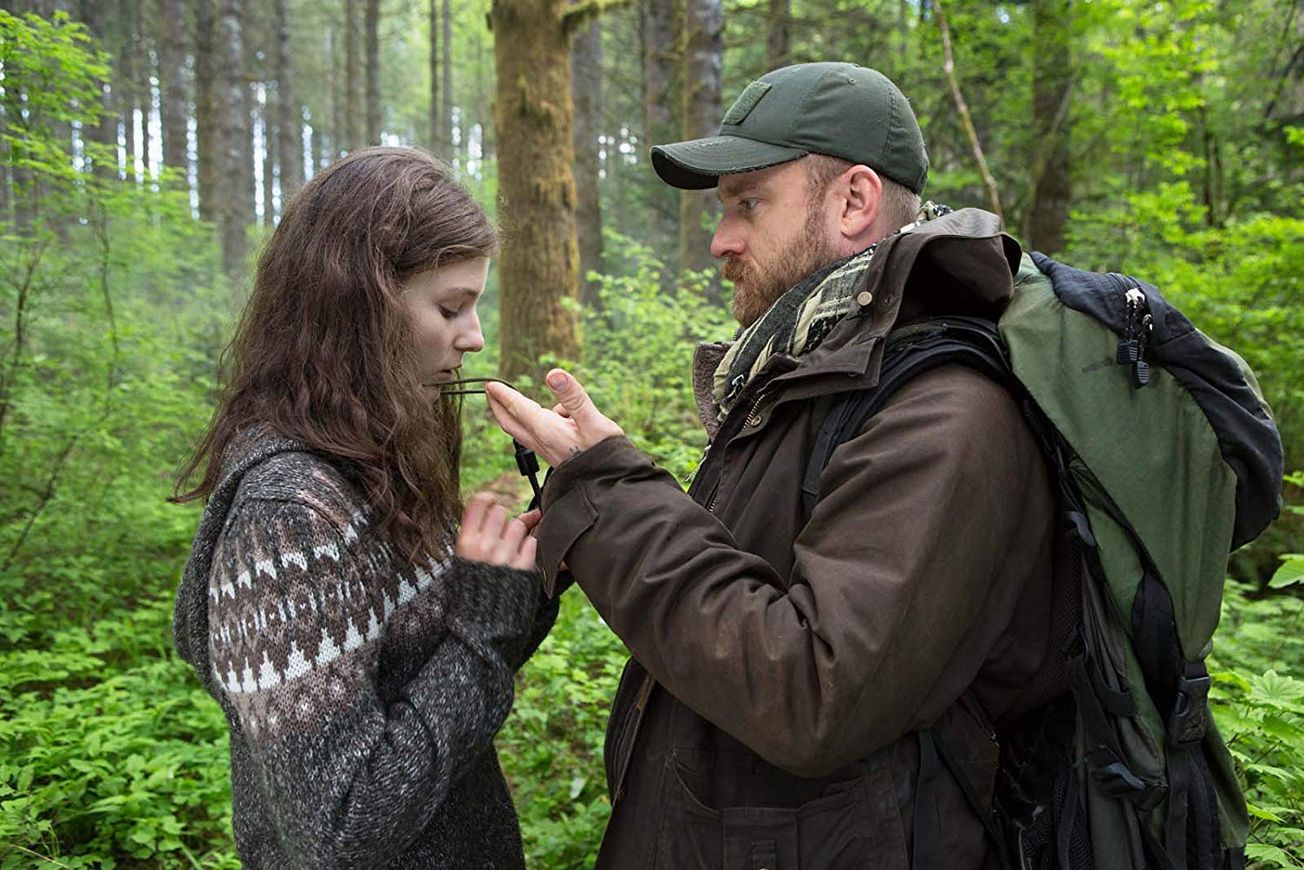By Ewan Marmo-Bissell, Second Year, History
The film, released in June 2018, is on many critics' list for films of the year and handles its topic with cinematic grace.
In 2012, the New York Times published an article detailing post-traumatic growth, interviewing veterans and exploring their ideas of how they have developed as a person since their trauma. This idea that you become stronger from your prior trauma is an appealing one. However, setting this idea of post-traumatic growth against a backdrop of post-traumatic stress disorder (PTSD) creates a greater picture.
Leave No Trace (2018), directed by Debra Granick, grapples with these ideas with its war veteran protagonist Will (Ben Foster), whose arc explores the dualism of post-traumatic experience, in a portrayal of the complex human spirit. While the primary dynamic of the movie is Will and his daughter, Tom (Thomasin McKenzie), and the inevitable car crash they approach, Will’s change since the war is further contextualised during the events.
Youtube / Bleecker Street
The leading pair live in a forest just outside of the city, developing a campsite into a home. Tom, no older than 11, has learned a lot from this simple life. She engages in exercises like identifying organs, foraging, and inspecting wildlife. Will, one way or another, passes on learning and traits which ultimately strengthen Tom. Their understanding of the natural world, adaptability and trust in one another gets them through the situations they face.
At one point Tom is noted as being further ahead in school, but crucially school is both academic and social skills. So we are introduced to this world where post-traumatic growth has made a character stronger and their daughter stronger by proxy. Over the course of the film, though, this world is challenged and brought to a tragic conclusion.
It slowly reveals to the audience that Will has been suffering from PTSD and struggles with night terrors. He receives medication which he then trades away due to its ineffectiveness, and his old military unit has been haunted by suicides. Despite his struggles in the park, it is relatively comfortable compared to when he and his daughter are forced back into traditional society. The second act of the film direct challenges the first, and portrays the flip side of the post-traumatic growth offered at the start.
How about sharing your favorite female directed films of the year? I'll go first
— Melissa Silverstein (@melsil) December 6, 2018
Lynne Ramsay- You Were Never Really Here@desireeakhavan - The Miseducation of Cameron Post
Debra Granik- Leave No Trace
Chloe Zhao - The Rider
And there are many more
Forced back into the traditional world, Will struggles to cope. It becomes apparent that despite his post-traumatic growth in some aspects of life - especially when in the park - day to day life in traditional society is near impossible for him. After a long struggle trying to somehow break into a traditional life, he and his daughter leave again to return to the wild. In this decision to return, more light is shed on Will: he is more than a simple non-conformist living on national ground, he is a troubled veteran who can’t live the way he is expected to. He has to live where his post-traumatic growth is at its strongest and the stress is at its weakest.
The second act looks forward to an inevitable collision between Will and Tom, which occurs in the third. They are inextricably linked but Will’s and Tom’s needs are so different. When they encounter another settlement, Tom stays and Will goes, not because he wants to, but because he has to. This moment of synthesis is Will’s realisation that for his daughter to ever be fulfilled, he must go.
Will chooses a life where he can try to avoid his haunting PTSD, and hopefully give his daughter a better life. The portrayal of Will, as a man whose experiences affect him in many different ways is a testament to the human spirit and experience. The confusing nature of how we react and change - or don’t change - to the occurrences of our life is what makes us human. His troubled mental health is the focal point of this, and by taking the tough choice to leave his daughter, he could find some peace and maybe so could she.
Ben Foster's Leave No Trace Aims to Reduce Mental Health Stigma in Veterans Dealing with PTSD https://t.co/olBIRearZf via @people
— Veterans Affairs (@DeptVetAffairs) December 3, 2018
Leave No Trace is an outstanding work in relating the human experience to its audience - that you can have differing and barely reconcilable feelings about your relationships, your home and yourself. Will’s mental health is an extension of this, Leave No Trace succeeds in its portrayal.
Featured Image: IMDB / Leave No Trace / MAB Productions
Did you manage to catch Leave No Trace in cinemas earlier this year?
Facebook // Epigram Film & TV // Twitter








